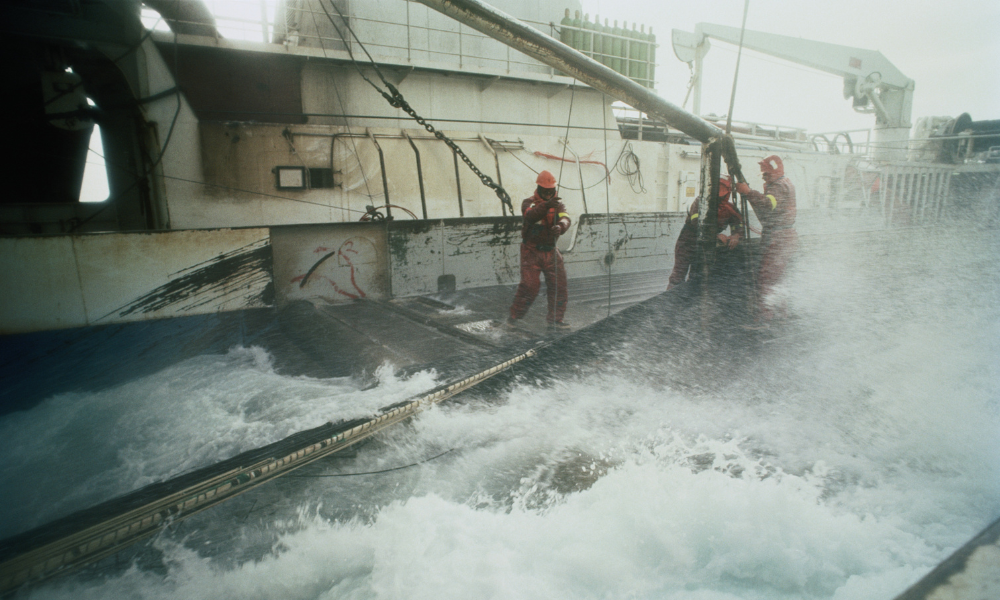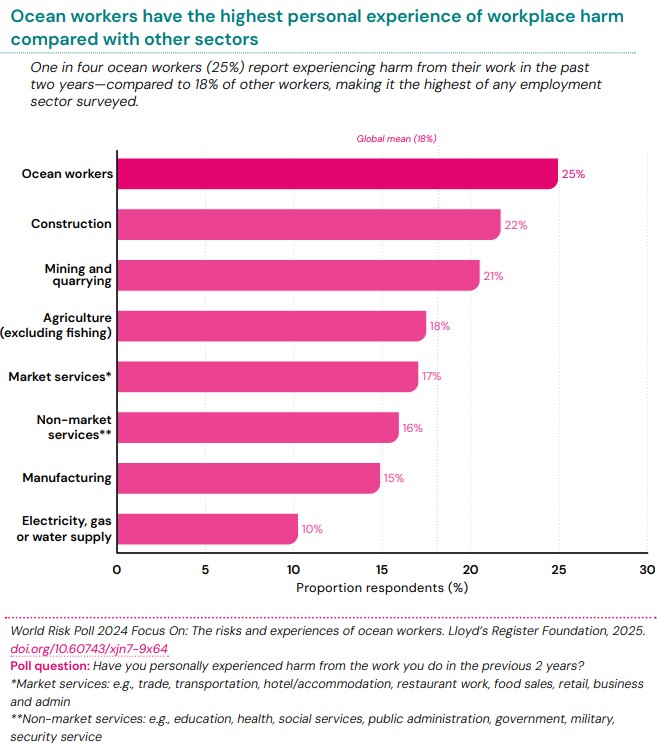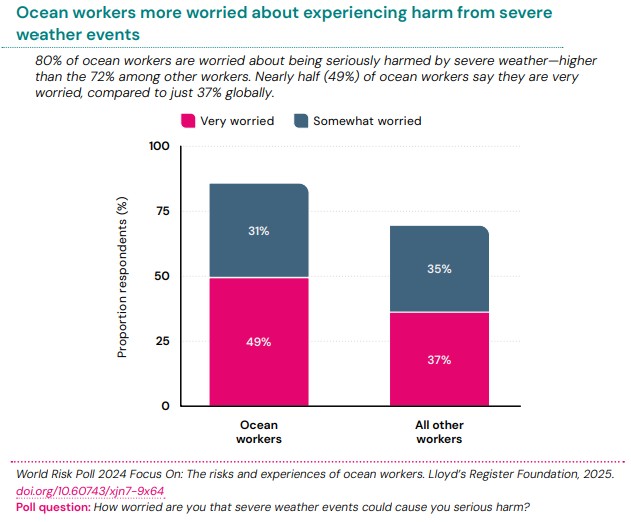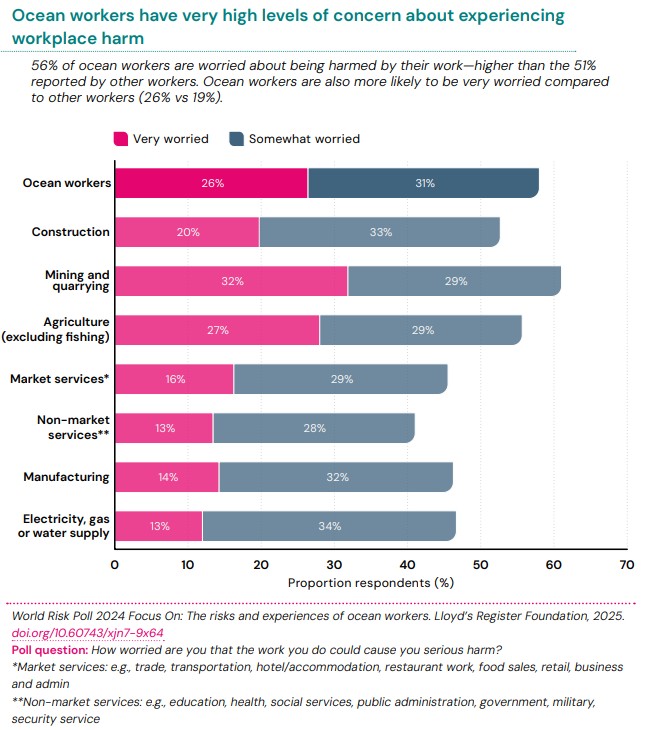Report also finds few ocean workers received proper training

Climate change is not simply about the day being too hot or too cold—it is a serious safety issue, especially for ocean workers globally, according to a recent report.
Overall, 25 per cent of ocean workers report experiencing harm from their work in the past two years—compared to 18 per cent among other workers—making it the highest of any employment sector, Lloyd’s Register Foundation reports.

And 80 per cent of ocean workers are worried about being seriously harmed by severe weather—higher than the 72 per cent of other workers. Nearly half (49 per cent) of ocean workers say they are very worried, compared to just 37 per cent among other workers globally.

When it comes to workplace safety overall, 56 per cent of ocean workers are concerned about being harmed by their work—higher than the 51 per cent of other workers. Ocean workers are also more likely to be very worried compared to others (26 per cent vs. 19 per cent).

Despite these concerns, only 32 per cent of ocean workers have received occupational safety and health (OSH) training in their current role, compared to 38 per cent of other workers.
Just 25 per cent of ocean workers have received OSH training in the past two years, “suggesting a training gap in a high-risk sector,” says Lloyd’s Register Foundation.
Also, only 41 per cent of ocean workers who experienced harm reported the incident, compared to 51 per cent of other workers.
Recommendations
“This suggests underreporting is more prevalent in maritime contexts—perhaps due to fear of retaliation, isolation, or lack of reporting infrastructure,” says the charity.
“Intensifying storms, unpredictable sea conditions, and changes in marine ecosystems are making ocean work increasingly dangerous,” reads part of the World Risk Poll Focus On report, powered by Gallup, which surveyed 147,000 people across 142 countries.
“Despite this, many ocean workers still lack access to appropriate and timely OSH training that reflects these emerging challenges. The problem is made worse by a widespread reluctance to report injuries or unsafe conditions, often due to fear of repercussions or mistrust in reporting systems. Without better training and stronger mechanisms for reporting and prevention, safety risks will continue to go unaddressed until serious harm occurs.”
Based on its findings, Lloyd’s Register Foundation is calling on stakeholders to act, recommending the following:
- Recognise ocean workers as a frontline group in the climate crisis, and ensure that national and international climate adaptation policies include specific provisions for their safety and wellbeing.
- Increase public and industry awareness of the risks ocean workers face due to climate change, encouraging broader support for protective policies.
- Invest in evidence-based policy and practice through initiatives like the Global Safety Evidence Centre to improve resilience and safety in maritime industries.
- Prioritise targeted OSH training for ocean workers, especially in high-risk roles and sectors most affected by climate change. Ensure that training is viewed as a continuous process, rather than a one-off event.
- Develop and enforce stronger safety standards tailored to the unique challenges of working on or near the water, including protections against severe weather and isolation-related stress.
- Expand access to confidential, independent reporting mechanisms like CHIRP, ensuring that all ocean workers can report safety concerns without fear of negative consequences.
- Strengthen mental health support and wellbeing services for offshore and remote maritime workers dealing with isolation, fatigue, and emotional strain.
- Promote cross-sector collaboration between governments, industry leaders, unions, and NGOs to address climate-driven risks and build long-term resilience in ocean-dependent industries.





